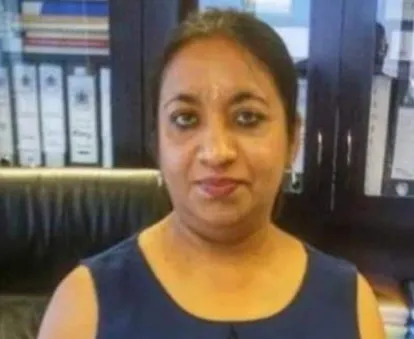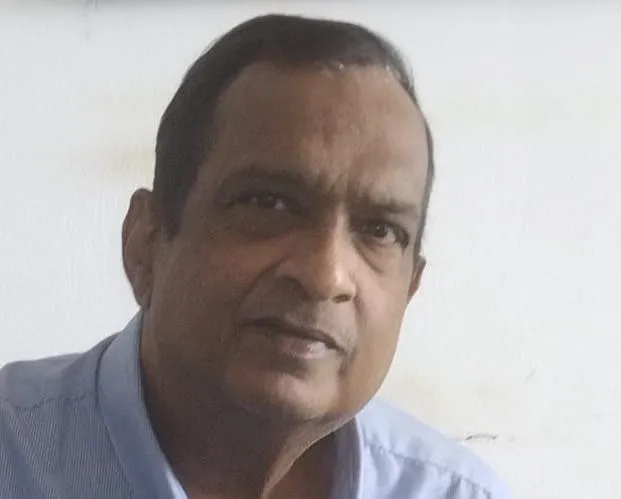
Corruption whistle-blower Babita Deokaran was gunned down outside her home in August 2021.
Image: Facebook
THAT is the million-dollar question. No pun intended, as we are talking about serious stuff here. As serious as life and death!
“Whistleblowing” is the buzz word in South Africa currently. Arguably, the biggest whistleblower is the intrepid KZN Police Commissioner Lieutenant-General Nhlanhla Mkhwanazi. Followers of this column will know that I hold him in high regard as he has made a considerable difference to this province.
Sadly, speaking out and exposing lawlessness and corruption places a target on your back, and possibly a bounty on your head. However, in among all the controversy about the Commissioner, let not the name Babita Deokaran be effaced. You see to me she is not just a name. Not just another statistic. She was a good friend. She and I shared a love of philanthropy.
Whenever I posted on social media that a family was in need or a children’s or senior citizen home needed feeding, she was the first to respond. One case that stands out is when she assisted me to buy a wheelchair for a Chatsworth-based musician who had fallen on bad times and was incapacitated. This was one of many humanitarian acts that Deokaran readily and willingly accomplished.
She had been the acting chief financial accounting director at the Gauteng Department of Health. Deokaran had blown the whistle on fraud and corruption at Tembisa Hospital, which involved billions of rand. This was as a result of tender irregularities. Ironically, she had flagged a company for suspicious activity which belonged to a businessman that Mkwanazi had also implicated in his recent allegations.
Deokaran had definitely thrown the “Cat” among the pigeons!
Her reward for whistleblowing was a hit-style assassination outside her home near Johannesburg after dropping off her daughter at school on August 23, 2021. A really sad day for justice. Three days later six men were arrested and charged with the murder, but the mastermind/s behind it are still at large. Her family live in hope for justice to prevail four years after the nefarious deed.
Whistleblowers are not ordinary beings. They are bold, courageous and righteous. The law should ensure their safety and well-being. Deokaran’s right to life must not be discounted. She does not deserve to be just a statistic. She deserves to be lauded and hailed as a heroine who spoke the truth despite knowing the possible consequences. Such people are rare and should not be made extinct.
Deokaran’s cowardly murder must not be in vain. Let us examine the meaning of whistleblowing. No finer method than to delve into the South African Human Rights Commission's definition,
- Who is a whistleblower? A whistleblower is a person who discloses information about wrongdoing in the workplace and reasonably believes that there is evidence of gross mismanagement or activity that is illegal, criminal, unethical, corrupt or in violation of the law.
- Why is whistleblowing important? Whistleblowing can be regarded as a tool to promote integrity and accountability and discourage corruption. It is important as it encourages institutions or organisations in promoting transparency, compliance, fair treatment and address the causes of malpractice. It prevents the ripple effect of malpractice, make everyone aware that wrongdoers get punished and once employees and other workers note the consequences, they endeavor to keep away from malpractice. Importantly, the culture of whistleblowing can serve as an early warning system to assist in the management of possible risks to an entity.
- What is the impact of corruption on human rights? Corruption can be defined as the abuse of office or resources for personal gain. Corruption worsens inequality, weakens governance, transparency, and accountability; and erodes public trust in the State and private institutions. It results in violation of human rights as it undermines the ability of the State to discharge its obligations to advance human rights and ensure a better life for all.
Well, as is evident from the above, the powers-that-be certainly have their work cut out for them. But it is imperative that it has to be done. Whether it be a lowly clerk in a small business that uncovers irregularities or a government employee that blows the lid on corruption, that person must be guaranteed safety and security.
We cannot have more fatalities like Deokaran.
Noble souls like her can’t be sacrificed on the altar of avarice. South Africa has laws and policies to protect whistleblowers. This is enshrined in the Constitution.Sadly though, it has been known that some employers view whistleblowers in a negative light and have the misconception that they are “spies, snitches or ‘impimpis’”.
To the contrary, people like my late friend Babita are real-life heroes. There are certainly many more of her ilk and we pray that they are well protected and not intimidated and harmed by unscrupulous people. Babita Deokaran must not just be another statistic! May justice prevail always.

Ravi Govender
Image: File
*Ravi Govender is a former POST sub-editor and Lotus FM radio presenter. He is a published author, a freelance editor and film producer in training. He can be contacted at: [email protected]
** The views expressed do not necessarily reflect the views of IOL or Independent Media.
Related Topics: